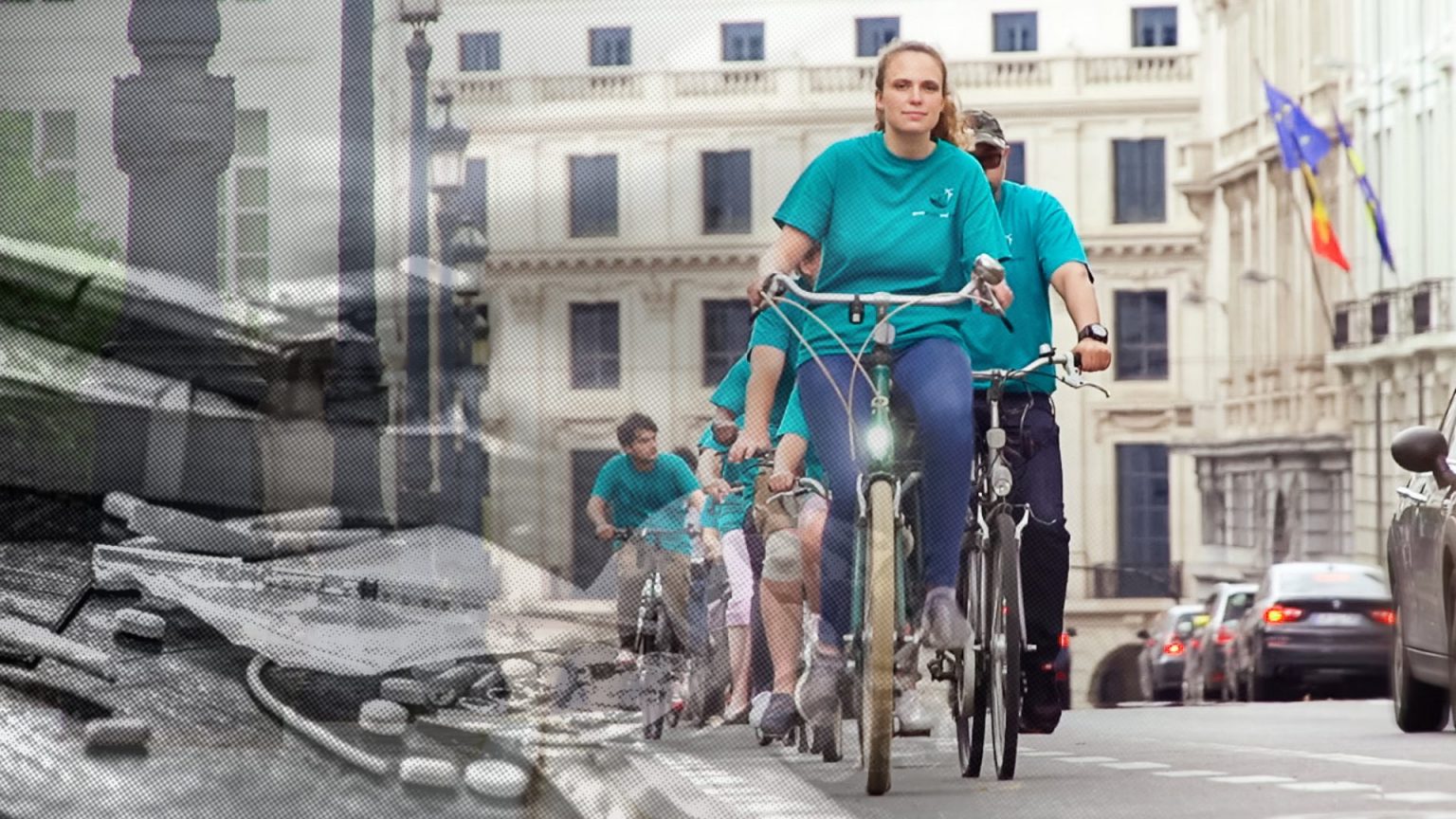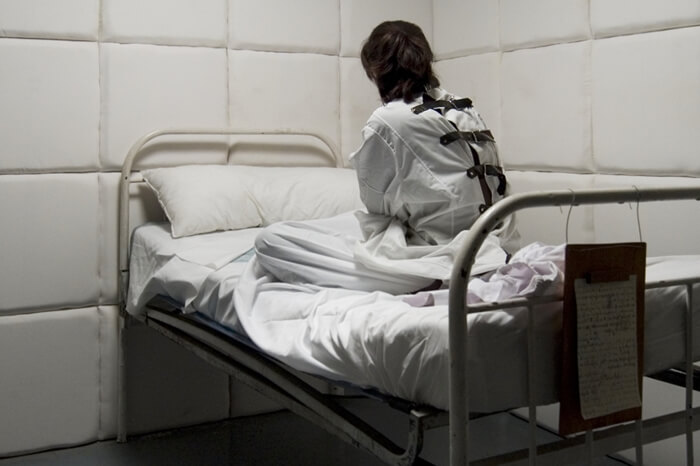Health & Society
Education seriously extends life
Dropping out of school is as harmful as five drinks a day
Scientists from the Norwegian Institute of Science and Technology have revealed the life-prolonging benefits of education, regardless of age, gender, location, social and demographic status. The results of the study are published in The Lancet Public Health.
It has previously been shown that those who have achieved higher levels of education live longer than others, but until now it was not known to what extent. The researchers found that the risk of premature death, regardless of cause, decreased by two percent with each additional year of education. Those who completed six years of primary school had an average 13 percent lower risk. After graduating from high school, the risk decreased by almost 25 percent, and 18 years of education decreased the risk by 34 percent.
Compared to the impact of unhealthy habits, dropping out of school is almost as harmful as drinking five or more alcoholic drinks a day or smoking ten cigarettes a day for 10 years.
Although the benefits of education are greatest for young people, people over 50 and even 70 still benefit from the protective effects of education. However, no significant difference in the effects of education was found between countries at different stages of economic development.
Health & Society
Belgium’s Battle Against Drugs and Alcohol Abuse: A New Hope Emerges

KingNewsWire. Belgium’s fight against alcohol and drugs abuse, has been highlighted by an article at the Freedom Magazine, the Voice of the Church of Scientology. The Foundation for a Drug-Free World, supported by Scientology, leads educational initiatives to expose substance abuse dangers. Central to that story is Julie Delvaux’s inspiring journey from someone surrounding the milieu to a compelling advocate, propelled by L. Ron Hubbard’s insights on drug threats.
Brussels, Belgium, 22nd Aug 2024 – Freedom Magazine, has just published a compelling article about the pervasive grip of alcohol and drug abuse on Belgium, which is likened to the mythical monster Bullebak(1), an analogy that intentioned to underscore the country’s struggle with substance dependency.
This journalistic piece highlights the extensive impact of these issues on Belgian society, introducing the inspiring and transformative actions led by the Foundation for a Drug-Free World and its volunteers to combat them.
An important but small country, Belgium has a population of 11.7 million, and yet faces a significant challenge with 1.1 million individuals consuming alcohol daily, and a staggering number grappling with alcohol abuse. This is a situation that grows bigger and bigger as substance use bridges to illicit drugs, contributing to over 60,000 drug-related crimes annually. In such an environment of widespread addiction, “I really saw how bad the drug problem was in my country and how ‘normal’ drugs are,” said Julie Delvaux, the protagonist of today’s story.
The original article draws attention to how Julie Delvaux, a Belgian young woman who, after a personal encounter with drugs being used among her friends, became a pivotal figure in the fight against this societal menace. Her journey to activism illuminates a path of awareness and education as vital tools in curbing drug abuse and even getting out of such a world before it is too late.
Julie’s activism with the activities and materials proposed and produced by the Foundation for a Drug-Free World marked a turning point in her life. Emphasizing education without judgment, the Truth About Drugs booklets provide factual insights about the effects of drugs, empowering individuals to make informed choices. Julie, alongside her peers, leverages Belgium’s cultural affinity for biking, music, and magic to disseminate these educational materials across the nation, reaching numerous cities through engaging events that merge entertainment with advocacy.

A significant highlight of their campaign was the strategic focus on Antwerp, Europe’s drug trafficking nexus. Here, Julie’s efforts were bolstered by collaboration with the Church of Scientology, amplifying her initiative’s impact through open houses and public events.
Throughout the campaign, the teachings of Scientology founder L. Ron Hubbard resonate, particularly his assertion:
“The planet has hit a barrier which prevents any widespread social progress—drugs and other biochemical substances. These can put people into a condition which not only prohibits and destroys physical health, but which can prevent any stable advancement in mental or spiritual well-being“.
L. Ron Hubbard
This quote encapsulates the profound societal implications of drug abuse, echoing the urgency and necessity of initiatives like Julie’s.
According to the report by Freedom and her very own episode at “Voices for Humanity” of the Scientology Network, Julie and her team’s unwavering commitment has touched 14% of the population in Belgium, sparking awareness and fuelling a movement to promote a drug-free lifestyle among young people. Her journey symbolizes a beacon of optimism, highlighting the impact achievable through community-driven initiatives.
The piece from Freedom Magazine goes beyond recounting Belgium’s challenges; it celebrates the power of education and grassroots efforts in addressing societal issues. Julie Delvaux’s narrative advocates for a shift towards prevention and transparency in combating substance abuse, offering hope for a future free from drugs, in Belgium.
First published through KingNewsWire.
*(1) Bullebak is a mythical monster:
The Bullebak is a mythical monster from Dutch folklore. It is often described as a terrifying creature used by parents to frighten children into good behavior, much like the boogeyman in other cultures. The specific appearance and characteristics of the Bullebak can vary, as it is more of a legendary creature than one with a standardized description. The term is generally used to refer to a menacing or fearsome being that lurks in the shadows, ready to pounce on misbehaving children.
Health & Society
Smoking cannabis – 11 times higher risk of mental disorders

A new study published in the journal Psychological Medicine estimates that teenagers who use cannabis are 11 times more likely to develop a psychotic disorder than their non-marijuana-smoking peers.
The paper is entitled “Age-Dependent Association of Cannabis Use with Risk of Psychotic Disorder”.
This finding suggests that the link between cannabis and psychotic disorders may be stronger than indicated in previous studies that relied heavily on older data, when it was less effective than it is today. For context, the average THC strength of cannabis in Canada has increased from approximately 1% in 1980 to 20% in 2018.
Researchers from the University of Toronto, the Center for Addiction and Mental Health (CAMH) and ICES linked recent data from a population-based survey of over 11,000 adolescents in Ontario, Canada to data on health service use, including hospitalizations, emergency room visits, and in an outpatient clinic.
“We found a very strong association between cannabis use and the risk of psychotic disorder in adolescence. But surprisingly, we found no evidence of a relationship in young adulthood,” says lead author Andre McDonald.
Of the teens who were hospitalized or visited the emergency room for a psychotic disorder, approximately 5 in 6 reported prior cannabis use. MacDonald’s observations indicate that “a large proportion of teenagers who use cannabis will not develop a psychotic disorder, but according to these data, most adolescents who are diagnosed with a psychotic disorder have a history of cannabis use.”
The researchers say they cannot completely rule out reverse causation, as adolescents with psychotic symptoms may have self-medicated with cannabis before receiving a clinical diagnosis.
They also cannot account for potentially important factors, such as genetics and trauma history. These limitations make it impossible to say definitively that teenage cannabis use causes psychotic disorders. The authors also note that their estimates are only approximate, suggesting that further studies are needed.
Health & Society
Sexual abuse, electric shocks, chemical restraints in Mental Health Care, report finds

A disclosure by New Zealand’s Royal Commission has exposed a distressing past of mistreatment within its mental health and behavioral facilities impacting 200,000 children and vulnerable individuals.
“For some people it meant years or even decades of frequent abuse and neglect. For some it was a lifetime; for others, an unmarked grave,” the report stated.
This thorough investigation spanning six years with a price tag of $101 million has revealed the abuse and neglect that transpired under the pretext of mental healthcare. The revelations have reverberated globally, sparking calls of patients’ rights groups for improvements in mental health services worldwide, particularly in Europe.
Reality of sexual abuse, electric shocks, chemical restraints
The Royal Commissions publication titled “Whanaketia – Through pain and trauma from darkness to light” sheds light on a reality of sexual abuse, electric shocks, chemical restraints, medical trials and other forms of maltreatment. Survivors who have awaited recognition were finally assured by Prime Minister Christopher Luxon that “Your voices are heard and your experiences acknowledged.” The governments acknowledgment of these atrocities as torture marks a step towards justice and recovery for those affected.
“reality of sexual abuse, electric shocks, chemical restraints, medical trials and other forms of maltreatment”
The Citizens Commission on Human Rights (CCHR) in New Zealand has been instrumental in advocating for survivors and documenting abuses since 1977 including instances, like the therapy administered to children at the now shuttered Lake Alice Psychiatric Hospital.
“Many survivors died while under guardianship, or by suicide after receiving guardianship. For others, the effects of the abuse persist and worsen, making their daily activities and choices difficult,” the report adds. The country’s prime minister, Christopher Luxon, called it a “dark and sad day in New Zealand’s history as a society,” stating that “we should have done better, and I am determined that we will“, reports the BBC.
Survivors may receive compensation amounting to NZ$1.2 billion ( NZ$2 billion) shedding light on the magnitude of the injustice.
According to Jan Eastgate, President of CCHR International the report’s global ramifications are significant as similar abuses have been documented in the United States and other nations. We could mention Germany, France, Spain, Switzerland and others too. The inquiry’s conclusions echo those of a U.S. Senate inquiry into misconduct in behavioral institutions underscoring the pressing need for international reforms.
The revelations from New Zealand serve as a reminder of the potential for mistreatment within psychiatric healthcare systems.
Some of the New Zealand report recommendations
- Recommendation 33: The Ministry of Justice, Te Kura Kaiwhakawā Institute of Judicial Studies, NZ Police, the Crown Law Office, the New Zealand Law Society and other relevant legal professional bodies should ensure that investigators, prosecutors, lawyers, and judges receive education and training from relevant subject matter experts on:
a. the Inquiry’s findings, including on the nature and extent of abuse and neglect in care, the pathway from care to custody, and the particular impacts on survivors of abuse and neglect experienced in care
b. trauma-informed investigative and prosecution processes
c. all forms of discrimination
d. engaging with neurodivergent people …
e. human rights concepts, including the obligations under the Convention on the Rights of Persons with Disabilities, the Convention on the Rights of the Child, the Convention on the Elimination of All Forms of Discrimination against Women, the Convention on the Elimination of All Forms of Racial Discrimination, and the United Nations Declaration on the Rights of Indigenous Peoples. (page 123)
- Recommendation 34: NZ Police should review the Police Manual and other relevant material to ensure instructions and guidelines reflect and refer to Aotearoa New Zealand’s international human rights obligations and other relevant international law obligations (including the Convention on the Rights of Persons with Disabilities, the Convention on the Rights of the Child, the Convention on the Elimination of All Forms of Discrimination against Women, the Convention on the Elimination of All Forms of Racial Discrimination, and the United Nations Declaration on the Rights of Indigenous Peoples) (page 124)
- Recommendation 35: NZ Police should establish a specialist unit dedicated to investigating and prosecuting those responsible for historical or current abuse and neglect in care. (page 125)
Deaths and Unmarked Graves
- The Inquiry has not only received evidence of people dying in care but also of people in care being buried in unmarked graves. (Point 93, page 45) In 2014, a local historian identified 172 unmarked graves at Waitati Cemetery, Otago. About 85% of these graves are from former institutions such as Cherry Farm (psychiatric hospital) and Seacliff. The historian noted that the last burial was in 1983. (Point 98, page 45)
- The inquiry found Evidence of unmarked graves for patients who died at some psychiatric hospitals across Aotearoa New Zealand, particularly at Porirua, Tokanui and Sunnyside Hospitals. (Point 77c, page 54)
So, what do we do in Europe?
While Europe is a “contintent of fundamental rights”, we must not forget that many of the abuses (usually and wrongfully called treatments) that we read today in the inquiry started in the very Europe, specifically experimenting in Germany by psychiatrists in favour of Nazi politicians). It would then be logical to underscore the necessity for Europe to scrutinize its mental health practices and ensure that human rights remain paramount in care provision. This is where the World Health Organizations (WHO) QualityRights campaign comes into play.
The QualityRights initiative aims to enhance care quality and human rights standards, in health and social care facilities worldwide. It endeavors to revolutionize health services by advocating for practices that uphold human rights and enhance mental healthcare quality.
Europe with its healthcare systems and cultural contexts finds itself at a crucial juncture.
The lessons learned from the inquiry in New Zealand (and from the times of the Nazis) should inspire countries to embrace and put into action the WHO’s QualityRights guidelines. Here are some important steps that Europe can consider:
- Upholding Human Rights: It is vital for European nations to ensure that mental health services uphold and defend the rights of individuals dealing with health issues. This involves preventing any form of treatment and ensuring that care is given with dignity and respect.
- Empowerment and Advocacy: Empowering individuals with mental health challenges along with their families and communities is essential. By encouraging advocacy efforts and providing platforms for voices to be heard Europe can bring about changes in mental health care systems.
- Policy and Legal Frameworks: European countries should establish and enforce policies and laws that adhere to international human rights standards. This includes setting up mechanisms for accountability and addressing cases of abuse.
- Building Capacity: Offering training programs and resources to enhance the knowledge and skills of health professionals, service users and advocacy groups is crucial. This will ensure that care is provided in a way that respects human rights principles.
- Enhancing Services: Priority should be given to improving the quality of health services while being responsive to the needs and preferences of users. This involves transitioning from institutionalized care, to community based services that help individuals integrate into society.
- Community Centered Solutions: Embracing care models rooted in communities can help break down the settings that have long perpetuated abuse. By offering support in environments individuals can experience healthier and more rewarding lives.
Spanish Supreme Court Rules that exposing abuses is of general interest and much needed debate
In a verdict Spain’s Supreme Court upheld the value of educational initiatives led by the Citizens Commission on Human Rights (CCHR) acknowledging their crucial role in raising awareness about abuses in psychiatric practices. This decision highlights the importance of advocacy and education in bringing about change and safeguarding rights within mental health services.
The court’s ruling serves as a reminder of the impact that informed and empowered communities can make in challenging systemic mistreatment. By backing efforts that educate the public and prioritize transparency European countries can cultivate spaces where mental health treatment is not only ethical but also effective.
An alarm for urgent action
The recent inquiry in New Zealand has shed light on aspects of psychiatric care exposing harmful practices that should never be repeated. As Europe contemplates these revelations the WHO’s Quality Rights campaign provides a blueprint for improvement. By embracing these standards and drawing lessons from Spain‘s dedication to education and advocacy European nations can ensure that mental health services are not just efficient but uphold human rights principles and dignity.
By drawing insights, from New Zealand’s history and adopting the Quality Rights framework Europe has the potential to pave the path towards establishing a health care system that genuinely upholds and safeguards the rights of every individual, while eradicating at once all the existing abuses without hesitation.
-

 EU & the World2 days ago
EU & the World2 days agoAshanti & Nelly Welcome First Child Together & Reveal Baby Boy’s Name
-

 Politics2 days ago
Politics2 days agoPoland’s Former Prime Minister Mateusz Morawiecki Eyes Leadership of European Conservatives and Reformists
-
EU & the World2 days ago
Mike Lynch Yacht Update: Fifth Body Recovered Off Coast of Sicily
-

 EU & the World2 days ago
EU & the World2 days agoDoes Travis Kelce Appear in Swift’s ‘I Can Do It With a Broken Heart’ Music Video?
-

 EU & the World2 days ago
EU & the World2 days agoLil Jon Brings the House Down at the 2024 DNC With ‘Turn Down for What’
-

 Health & Society2 days ago
Health & Society2 days agoSexual abuse, electric shocks, chemical restraints in Mental Health Care, report finds
-
Travel3 days ago
Southern European tourists flock to Denmark to escape the heat
-
Travel2 days ago
New Brussels to Venice night train: The 9 cities en route, what it will cost and how to book















